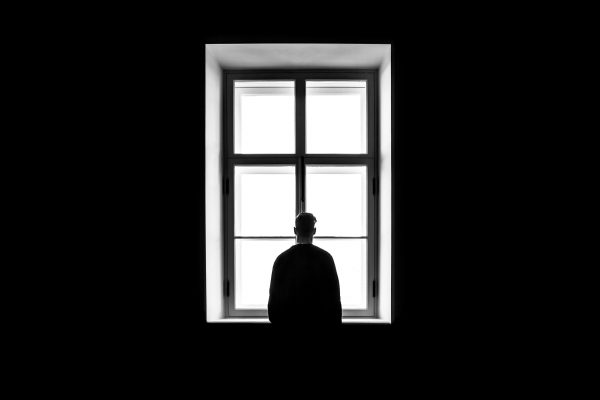There is not a right or wrong way to feeling a certain way to incidences like this. You can be impacted in many ways from the behavioral, cognitive, physical, as well as at the spiritual level.
There is not a right or wrong way to feeling a certain way to incidences like this. You can be impacted in many ways from the behavioral, cognitive, physical, as well as at the spiritual level.
Alhamdulililah, I woke up again getting ready for the last workday of the week. It’s Friday, and I am blessed to have made the fajir prayers especially with the daylights savings change. Just a regular morning thinking and planning the day ahead, annoyed with the snow I still see outside but grateful that the weather is getting warmer. Then my blood stopped cold in my veins reading what happened in New Zealand. The shocking terror attack on two mosques during Friday prayers where 49 innocent lives were taken; with children, women, and men bulldozed down as though the shooter was in a video game whilst recording live on Facebook for the world to see his sick game come to life. Shooting down his first victim who welcomed him with the greeting of “Salam Brother”.
Our minds fail to comprehend how people can do such evil acts …shocked into silence and sadness that such an act came from the breeding of hate and the politicized permission of white supremacist rhetoric. The mind and spirit can only handle so much before succumbing to denial as a way to naturally protect and block out such atrocities.
When I got to work, I read through the horrors of the news reports and posts all over social media. In the back of my racing thoughts, my therapist self-care mind advised me to let my boss know about this incident and that I have been impacted by it and do not know how I will be the rest of the day. As I kept reading the articles and seeing the pictures of broken hearts and trauma on the faces of the survivors, my heart started breaking for what the families and witnesses must be going through and how the rest of the people worldwide are responding to this tragedy.
Less than 2 years ago we were shocked into the same silence as we heard of the Quebec mosque shooting that took places soon after the Trump Muslim ban and.
As a fellow Muslim, as a fellow human, I am silenced with deep sadness as I try to wrap my mind around such acts of evil and hate and I am at a loss of how to proceed to the next thought with such heaviness in my chest. As I am lost in this heaviness I hear a light hesitant knock at my door…I try to compose myself and wipe away the tears that had formed in my eyes. I open the door and I see my boss who came in to check on me and began with apologies and sympathy that sent me to bursts of tears. Her kindness and outreach to a fellow human were what I needed at that moment as we both helplessly spoke in shock at what took place just hours before. Then our professional sides quickly came up with the reality of the workday ahead with the patients on my schedule and how short staffed we are today. I composed myself again, put aside my hurting heart, and tried to focus my therapist mind on my first patient.
After forcefully putting New Zealand in a box on the invisible shelf in my mind as a temporary coping strategy to compartmentalize and get going in my workday, I was able to focus my attention for my patient.
After that session, my thoughts drifted back again to the devastation. And often in these types of helpless situations, I felt the frustration arise as I am sure many of us are experiencing along with a plethora of other mixed emotions and thoughts. Fear…are we safe to go to our own mosques and places of worship? Are we safe wearing the hijab and walking publically in it?
Then my clinical therapist side kicked in with the crisis and traumatic incidences training I have, and although I feel as helpless as the next person responding to this blatant Islamophobic attack, I pulled some thoughts together on how to cope with this tragedy.
1. Whatever you are feeling (fear, shock, denial, sadness, anger, guilt, numbness etc), these are ALL NORMAL responses. There is not a right or wrong way to feeling a certain way to incidences like this. You can be impacted in many ways from the behavioral, cognitive, physical, as well as at the spiritual level. Your sleep could be impacted, and your appetite as well. These are all normal.
2. Be AWARE of your responses and be compassionate with yourself. For example, it’s alright to take a mental health day off work and inform your colleagues and managers of how such an incident impacts you.
3. Try to continue in your regular routines of a healthy lifestyle with regular exercise, proper sleep, and a healthy diet as these are extremely important in managing ourselves. We may not have control over such incidences, but we do have the control of how we choose to respond to them afterward.
4. Coming together as a community to share in the grief and to show love and support such as in public vigils and memorials at centers and places of worship. Clinical research shows significant results in communities who share in grief as well as in prayers.
5. Learning more about death-related grief responses, seeking comforting rituals (spiritual, religious, social etc), and avoiding making big life-changing decisions at the moment are vital.
6. To continue with faith-based activities and attending places of worships as a sign of resilience and overcoming fear while being together with supportive community members.
7. To NOT avoid or repress emotions, or using work, substances, and or other unhealthy habits as coping mechanisms.
8. To NOT project pain onto those who are not connected to the incidences, especially when they are showing love and support. Many people of other faiths and backgrounds have been incredibly supportive, which shows that acceptance of that compassion helps in the healing process.
9. To understand that you have done nothing wrong being who you are as a Muslim and that you have every right to go freely and safely to any place.
10. Connecting with local communities, politicians, and police forces to condemn such acts but to also lobby for protection and action. When feeling helpless, these sorts of actions mobilizes sadness and despair to productivity and confidence that you’re doing something about an otherwise debilitating situation.
11. Be aware of how your children and youth are responding to this as it will surely impact their self-image and question their identity as Muslims. To have open and genuine discussions with them to the level of their understanding at their stage of development especially on the topics of death, bullying, and discrimination. Please seek professional counseling supports as needed and also speak with the school teachers and principals about your concerns.
There are a number of ways that we as a community can support each other and provide safe spaces for us to talk about such incidences. Those with mental health training could potentially offer their services in the mosques and places of worship for those struggling to turn to and talk with one another. Finally, I encourage those who have access to a therapist to speak with them help in the processing of such tragedies and to take the time they need to work through them and to heal as needed. These incidences can also trigger past traumas and it is important that we recognize that and have the right supports in place to help.
Bless those who were lost in this tragedy. Bless those who are dealing with the losses of their loved ones. Bless all of us who are in pain of the loss of our fellow Muslims. Our fellow humans. May you all be blessed and supportive in this time of tragedy and may you find peace and compassion. We will need each other more moving forward in strengthening ourselves inwardly out.





